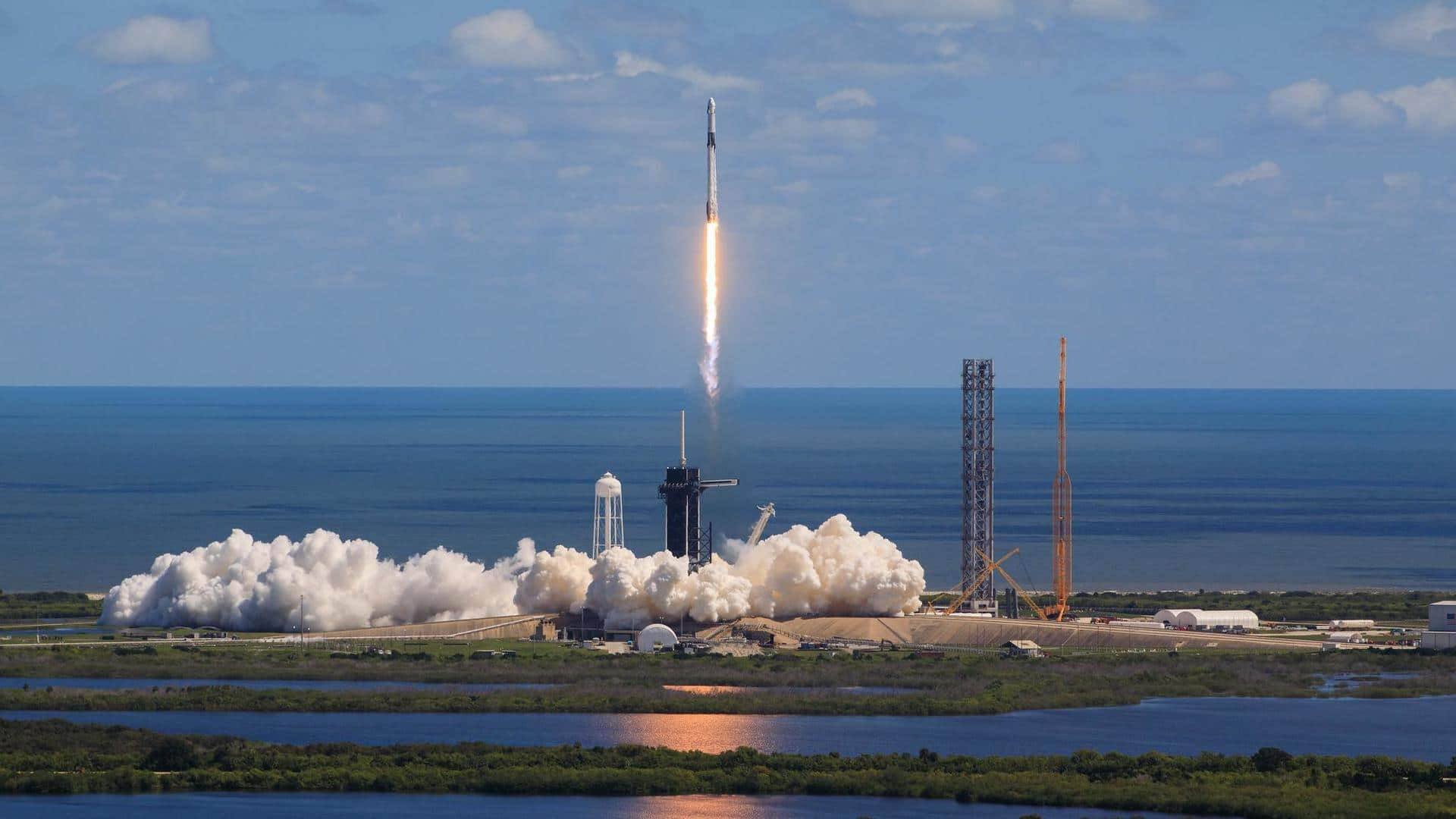
NASA-SpaceX Crew-6 to launch soon: Key facts about the mission
What's the story
NASA-SpaceX Crew-6 mission will soon take off for the International Space Station. The launch is scheduled for February 27 from the Kennedy Space Center, Florida. The Astronauts, who are a part of Expedition 69, will spend up to six months at the orbiting lab. During their tenure, they will conduct a series of scientific investigations, including microgravity experiments involving heart tissue.
Context
Why does this story matter?
Originally, the launch was scheduled on February 26 but was delayed after a lengthy Flight Readiness Review. This review focussed on the "preparedness of SpaceX's crew transportation system, the space station, and its international partners to support the flight, as well as the certification of flight readiness." The Crew-6 mission will be the sixth astronaut mission that SpaceX will launch to the ISS.
Crew
Meet the members of the Crew-6 mission
Crew-6's Dragon capsule Endeavour will launch aboard SpaceX's Falcon 9 rocket at 1:45 am EST (12:15 pm IST), on February 27. The Crew-6 mission includes four members: NASA astronauts Stephen Bowen and Warren Hoburg, UAE astronaut Sultan Alneyadi, and Roscosmos cosmonaut Andrey Fedyaev. The mission will be special for Alneyadi who will be the first Arab to go on a long-duration space mission.
Scientific studies
Astronauts will perform investigations on heart tissue under microgravity conditions
Here is a briefing on the scientific investigations that will be carried out at the ISS. National Institutes for Health (NIH), along with National Center for Advancing Translational Sciences (NCATS), is launching 'Tissue Chips in Space,' an initiative to study heart muscle tissue under microgravity conditions. Astronauts will test tissue chips, which are small devices that mimic the functions of human organs.
Heart-related studies
Results from the ISS investigations could be useful on Earth
Clinically approved drugs will be tested to determine if they can prevent changes in heart cell function and gene expression that occur during spaceflight. These results could be also useful in drug development studies on Earth. Investigations will be conducted on therapies that prevent space-induced changes in heart tissue that could lead to cardiac disease, which could help develop strategies to protect future astronauts.
Immune system
There are also studies on monitoring immune cells
'Immunity Assay,' an investigation by the ESA, will monitor how stresses encountered during spaceflight affect the functions of immune cells. Until now, this test was only performed on Earth and was conducted before and after the flight. The new assay technique makes it possible to conduct the test in-flight, which could provide a better picture of the immune changes that happen during spaceflights.
Sampling
During spacewalks, astronauts will also collect microbial samples outside ISS
The astronauts will also collect microbial samples outside ISS during spacewalks. The microorganisms that can thrive in harsh environments like space, called extremophiles, could have potential uses on Earth also. This research could help determine if changes would have to be made to crewed spacecraft, and also spacesuits, "to limit the spread of contamination from Earth on future exploration missions."
Combustion research
"The investigation also could contribute to crew safety"
Crew-6 astronauts will continue carrying out research on combustion systems. "Results could help scientists assess the flammability of materials used in future space missions, a critical factor in spacecraft and facility design," said NASA. "The investigation also could contribute to crew safety by helping to determine the best equipment and procedures to detect and suppress a fire in space and to clean up afterwards."